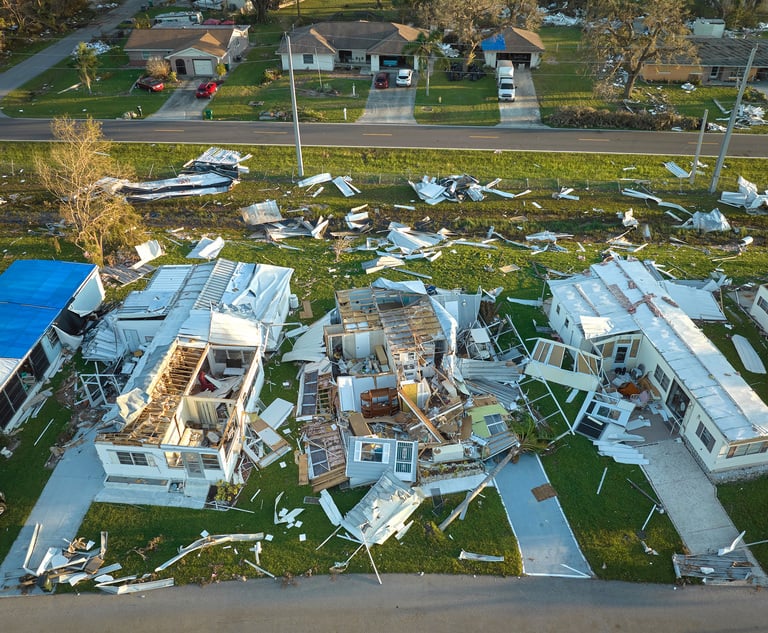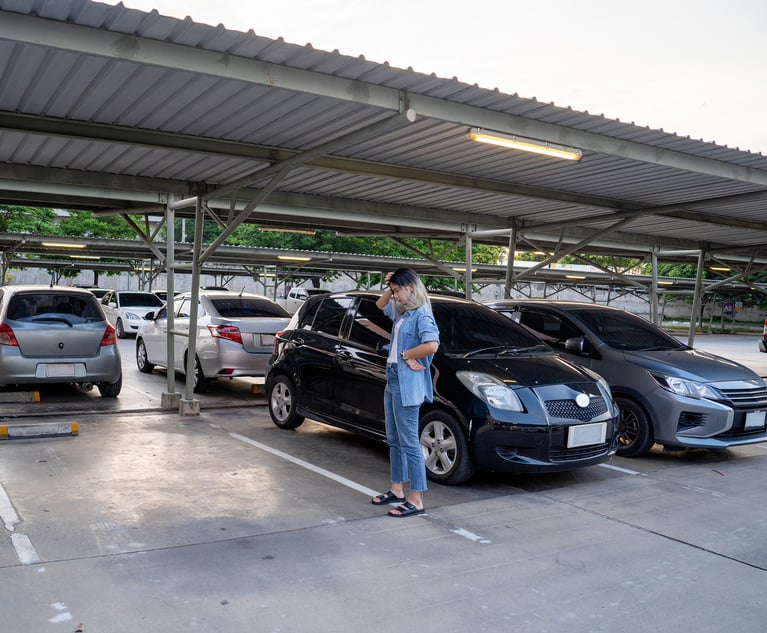No Hurricane Andrew Lessons Learned?
|NU Online News Service, Aug. 14, 3:27 p.m.EST?Ten years after Hurricane Andrew, many communities arepoorly insured for storms and have permitted building in areas thatare vulnerable to natural disaster, according to the InsuranceInformation Institute.
|The New York-based Institute said municipalities still fail torecognize the potential impact of hurricanes in their local landuse planning and development practices, making them more vulnerableto damages when storms hit.
|The Institute said many properties are underinsured, uninsuredor uninsurable.
|The Institute found that mitigation efforts to reduce propertydamage, death, injuries and economic loss from the next HurricaneAndrew have been effective where applied, but their use has beenspotty and in some cases their benefit diminished by unwise landuse policy.
|Hurricane Andrew, the most costly natural disaster in U.S.history, tore into the Bahamas and southern Florida from Aug.23-24, 1992, and then moved across the Gulf of Mexico to hit partsof Louisiana and other southeastern states Aug. 25-26.
|Insured damage in Andrew's wake totaled nearly $16 billion--$20billion in today's dollars. Since then only the estimated $50billion in insured losses from the Sept. 11 terrorist attack havebeen more costly, noted the Institute.
|Hurricane Andrew's peak wind gusts of almost 200 m.p.h.destroyed whole communities, demolished thousands of homes andbusinesses, flattened crops and left mountains of debris.
|The Institute called Andrew the greatest claims handlingchallenge the industry has ever faced, producing 700,000 claims ina path of destruction stretching over thousands of squaremiles.
|The weather catastrophe loss from Andrew not only delivered astunning financial blow to insurers, but also to the economy ofsouth Florida, which took the severest hit, the Institutenoted.
|"The immediate financial and market consequences of Andrew forinsurers were swift, severe and long lasting," said Robert Hartwig,the Institute's senior vice president and chief economist.
|"Numerous smaller insurers became insolvent, and the market forresidential and commercial property coverage in coastal areas ofthe state dried up," he recalled. "Catastrophe reinsurance pricessoared and available limits of coverage tumbled. Some Floridasubsidiaries of large national insurers required infusions ofcapital to stay afloat."
|The Institute warned that catastrophe modeling firms haveestimated that a worst-case scenario event--a Category 5 hurricanestriking downtown Miami--could produce insured losses well inexcess of $50 billion, making it one of the largest catastropherisks anywhere in the United States.
|While a $50 billion insured loss would produce a staggering blowto insurers, the total economic loss would likely exceed $80billion, the Institute noted.
|According to Mr. Hartwig, efforts to reduce future lossesthrough zoning restrictions or changes in building codes are veryvaluable, but are often resisted by politically powerful developersand homebuilders as well as real estate interests and proponents ofgrowth.
|"Unless more substantive risk-reduction strategies areadopted--such as building moratoria in those areas that are themost vulnerable to hurricane damage--the benefits from mitigationwill remain elusive," he said.
|The Institute said information on the tenth anniversary ofHurricane Andrew, and the insurance implications, is available onits Web site at: www.iii.org/media/hottopics/hot/hurricane/.Information on mitigation efforts can be obtained from theInstitute for Business & Home Safety's Web site at www.ibhs.org.
|The Institute is a nonprofit communications organizationsponsored by the property-casualty insurance industry.
Want to continue reading?
Become a Free PropertyCasualty360 Digital Reader
Your access to unlimited PropertyCasualty360 content isn’t changing.
Once you are an ALM digital member, you’ll receive:
- All PropertyCasualty360.com news coverage, best practices, and in-depth analysis.
- Educational webcasts, resources from industry leaders, and informative newsletters.
- Other award-winning websites including BenefitsPRO.com and ThinkAdvisor.com.
Already have an account? Sign In
© 2024 ALM Global, LLC, All Rights Reserved. Request academic re-use from www.copyright.com. All other uses, submit a request to [email protected]. For more information visit Asset & Logo Licensing.








